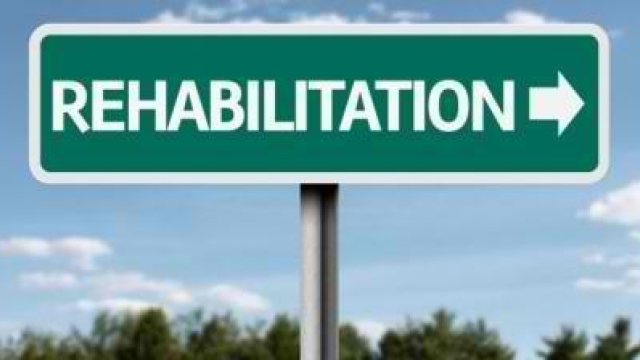Alcohol addiction is a gripping affliction that can cast a deep shadow over one’s life, causing emotional and physical turmoil for both individuals and their loved ones. However, amidst the darkness, there is always hope. This hope lies within the realm of alcohol rehabilitation, a transformative journey that offers individuals the tools and support needed to overcome addiction and embark on a path towards sobriety.
Navigating the intricate world of alcohol rehabilitation can be overwhelming, but fear not; you are not alone in this endeavor. This article serves as a guide, illuminating the way towards a brighter future. Whether you are looking for assistance for yourself or seeking information to aid a friend or family member, understanding the process of rehabilitation and the steps involved can make all the difference. So, let us embark together on this enlightening journey, shedding light on the path from darkness to sobriety.
Understanding Addiction
Addiction is a complex and challenging condition that affects millions of people around the world. It is characterized by a compulsive need for a substance, such as alcohol, despite negative consequences. Understanding addiction is essential in order to effectively navigate the path to recovery.
One of the key aspects to comprehend about addiction is that it is a chronic disease that alters the brain’s functioning. The prolonged use of drugs or alcohol can lead to changes in the brain’s chemistry, making it difficult for individuals to control their consumption. This is why addiction is often described as a relapsing disorder, as the urge to use the substance can resurface even after a period of sobriety.
Additionally, it is important to recognize that addiction extends beyond physical dependence. It encompasses various psychological and social factors as well. People may turn to substances as a means of escaping emotional pain, coping with stress, or seeking pleasure. Therefore, addressing the underlying causes and triggers of addiction is crucial for long-term recovery.
Navigating the journey through alcohol rehabilitation requires a comprehensive understanding of addiction. By recognizing the chronic nature of the condition and acknowledging the psychological factors involved, individuals and their support networks can develop effective strategies to achieve and maintain sobriety.
The Rehabilitation Process
In the journey toward sobriety, the rehabilitation process plays a vital role in helping individuals overcome alcohol addiction. This process typically involves a holistic approach that addresses the physical, psychological, and emotional aspects of recovery.
Firstly, physical detoxification is a crucial step in alcohol rehabilitation. This stage involves the removal of alcohol from the body, allowing it to gradually readjust to functioning without dependency on the substance. Often, medical professionals closely monitor this process to ensure the safety and well-being of the individual.
Once detoxification is complete, the focus shifts to the psychological and emotional aspects of recovery. Therapy plays a significant role in this phase, allowing individuals to explore the underlying causes and triggers of their addiction. Through counseling sessions and support groups, individuals learn healthy coping mechanisms and strategies for maintaining sobriety.
Additionally, education and relapse prevention programs are integral components of the rehabilitation process. Providing individuals with a comprehensive understanding of addiction and its potential consequences empowers them to make informed decisions and avoid relapse. These programs may include workshops, lectures, and practical exercises aimed at promoting self-awareness and personal growth.
In conclusion, alcohol rehabilitation encompasses various elements, all crucial in guiding individuals from darkness to sobriety. The process involves physical detoxification, psychological therapy, and education about addiction and relapse prevention. By addressing these aspects comprehensively, individuals can embark on a transformative journey toward a healthier and happier life, free from the clutches of alcohol addiction.

Maintaining Sobriety
In order to maintain sobriety and continue on the path of alcohol rehabilitation, it is important to implement certain strategies and make necessary changes to your lifestyle. Here are three key aspects to focus on:
Rehabilitation Centre In India
Establishing a Support Network: Surrounding yourself with a strong support network is crucial for long-term sobriety. This network can consist of friends, family, support groups, or even a sponsor. Having people who understand your journey and can provide guidance and encouragement will help you stay accountable and motivated.
Adopting Healthy Coping Mechanisms: During the rehabilitation process, it is important to develop healthy coping mechanisms to replace the urge to turn to alcohol. Find activities or hobbies that bring you joy and serve as positive outlets for stress or boredom. This could include exercise, meditation, painting, writing, or anything else that helps you relax and find fulfillment without relying on alcohol.
Making Lifestyle Changes: It is crucial to identify and address any triggers or situations that may tempt you to relapse. Evaluate your surroundings and make necessary changes to create a supportive and alcohol-free environment. This could involve removing alcohol from your home, avoiding certain social situations, or setting boundaries with friends who may not support your sobriety journey.
By focusing on building a strong support network, adopting healthy coping mechanisms, and making necessary lifestyle changes, you can increase your chances of maintaining sobriety and successfully completing your alcohol rehabilitation journey. Remember, it is a continuous process, and staying committed to self-care and personal growth will contribute to your long-term success.





